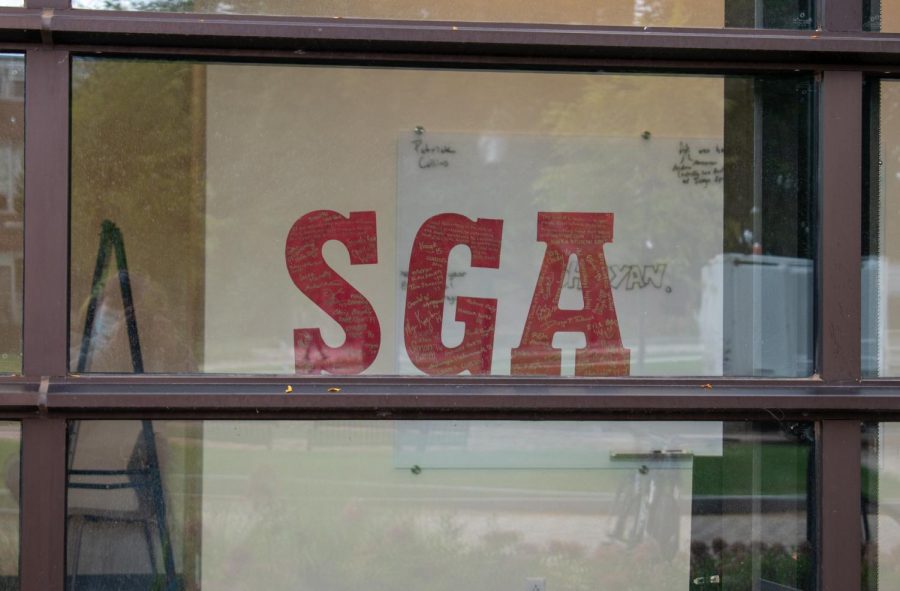At their first official meeting of the spring semester, the University of Massachusetts Student Government Association filled four positions and discussed the possibility of increasing student fees.
Chairman of the Ways and Means Committee John Dacey and Chair of the Finance Subcommittee Ian Harvey discussed the role of the Ways and Means Committee and its main purpose to review the yearly SGA budget, which is accumulated and made up by student fees.
At Wednesday’s meeting, Dacey and Harvey presented the possibility of raising student fees by 7%, or roughly 18 dollars per student, for next semester.
Dacey explained that the SGA has “complete autonomy over this money.” In other words, University administration cannot interfere with the SGA’s use of it.
Some of the budget goes towards paying student leaders and paying for projects such as the construction of the new student union. The rest of the budget, however, is divided out amongst the registered student organizations on campus, which rely solely on the SGA and their own fundraising for money to carry out their missions.
Currently, the Ways and Means Committee has a very extensive and thorough system in place that RSOs must go through in order to be approved for a budget. This is also true for emergency funding.
The SGA, however, cannot fully fund all budget requests from RSOs. Therefore, after each budget proposal is approved, the committee must cut the amount of money allocated by a percentage that is appropriate for the amount being asked.
Harvey said to think of it as a progressive taxation system. “We are taking more from the clubs that have more and less from the clubs that have less,” he said.
Due to the increase in expenses, the budget cuts will continue to grow if the SGA budget doesn’t increase.
Dacey and Harvey attributed this need for more money to many factors, such as minimum wage increases, inflation and the rising cost of materials. While these factors are at play, the number of RSOs on campus continues to grow each year as well as participation and interaction with their events.
While the increase of RSOs and campus interaction is a generally positive thing, it demands more money from the students to pay for the cost of it all.
“We are kind of hitting a brick wall,” SGA advisor Lydia Washington said.
Following this discussion, the SGA went on to vote and appoint new and existing members into positions.
Greta Melendez, a junior political science major, was appointed Chair of the Undergraduate Registry Oversight Committee. “As someone who is involved in RSO and the SGA, I thought I would provide a good perspective on how the SGA can improve their relationships with RSOs,” Melendez said.
Hayden Latimer-Ireland, a senior political science major was appointed to the role of Attorney General. Latimer-Ireland is a long-time member of the SGA and most recently served on the Administrative Affairs Committee.
Latimer-Ireland has previously served in this role and is looking forward to her return. “As many of you know I’ve held a lot of positions over my time in SGA,” she said. “I genuinely love the role of Attorney General.”
Rachel King, a junior environmental science major, was appointed the Secretary of Sustainability. King believes that she can immediately start making small steps in this position to move towards making UMass a more sustainable campus.
Finally, Juhi Manish, a freshman computer science major, and Bret Silverman, a sophomore political science major, were appointed as Elections Commissioners.
The role of an Election Commissioner is to run the SGA elections, which will occur during the spring semester.
“I want to increase voter turnout and contribute towards a fair, just, well-organized and well-publicized election,” Manish, who is an international student, said.
Grace Lee can be reached at [email protected].




















